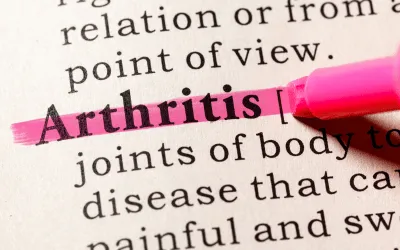About Arthritis
As the nation’s #1 cause of disability, arthritis affects nearly 60 million adults and 300,000 children. Over 100 types of arthritis and related conditions damage the joints and often other organs.
How can we assist you?
Helpful Tools for You

How Eating More Plants Can Help Your Joints and Overall Health
If you’re living with arthritis, you’ve probably wondered how you can reduce pain and improve your health naturally. The answer might be on your plate! A recent study published in PLOS ONE shows that plant-based diets—like vegetarian and vegan eating—can improve overall health by reducing inflammation, lowering disease risk, and helping you feel your best.
Let’s break it down into simple terms and explore how eating more plants can help your joints and overall wellness.
What Did the Study Find?
Researchers looked at 48 studies to see how plant-based diets affect health. Here’s what they discovered:
🌱 Better Health Markers: People who eat mostly plants had better cholesterol levels, improved blood sugar control, and healthier body weight—all good news for your heart and joints.
🌱 Less Inflammation: Plant-based diets were linked to lower inflammation in the body, which is a major cause of joint pain for people with arthritis.
🌱 Lower Risk of Disease: People on vegetarian or vegan diets had a lower risk of heart disease, certain cancers, and early death caused by cardiovascular problems.
For pregnant women, the study also showed that a vegetarian diet didn’t increase the risk of issues like gestational diabetes or high blood pressure.
Why Is This Important for Arthritis?
If you have arthritis, inflammation and excess weight can make your symptoms worse. Plant-based diets help because they:
✅ Fight Inflammation: Foods like fruits, vegetables, nuts, and whole grains are packed with antioxidants that calm inflammation in your body, reducing joint pain.
✅ Support Weight Loss: Carrying extra weight puts stress on your joints, especially your knees and hips. Eating more plants can help you manage your weight naturally.
✅ Protect Your Heart: Arthritis often increases the risk of heart disease. A plant-based diet improves cholesterol and blood pressure, keeping your heart healthy.
Simply put: More plants = less pain and better health!
Do You Need to Go Fully Vegan?
No! You don’t need to completely give up meat or dairy to benefit from a plant-based diet. Even small changes can make a difference:
🌱 Swap out meat for beans, lentils, or tofu a couple of times a week.
🥗 Add more colorful vegetables and fruits to every meal.
🥑 Snack on nuts, seeds, and healthy fats like avocado.
If you do go fully plant-based, it’s important to make sure you’re getting all the nutrients your body needs. Sometimes people on strict vegetarian or vegan diets might lack:
Vitamin B12 (important for energy)
Iron (helps carry oxygen in your blood)
Omega-3 fatty acids (important for your joints and brain health)
A nutritionist or healthcare provider can help you plan a balanced diet so you don’t miss out on these key nutrients.
How to Start Eating More Plants
Ready to give it a try? Here are simple tips to add more plant-based foods to your day:
Meatless Mondays: Try one day a week with no meat—think veggie stir-fries, lentil soups, or bean tacos.
Pack Your Plate with Color: Fill half your plate with vegetables like spinach, carrots, or broccoli.
Snack Smart: Choose fruits, nuts, or hummus with veggies instead of processed snacks.
Try Plant-Based Swaps: Use chickpeas instead of chicken in your salad or lentils in pasta sauce.
Eating more plant-based foods is one of the easiest ways to improve your health, reduce inflammation, and protect your joints if you have arthritis. You don’t have to make big changes overnight—start small and build healthier habits over time.
By adding more plants to your plate, you’re giving your body the tools it needs to fight pain, improve your energy, and feel better every day.
Effects of Arthritis

Cause of Disability
In the United States, 23% of all adults, or more than 54 million people, have arthritis. It is a leading cause of work disability, with annual costs for medical care and lost earnings of $303.5 billion.

Workforce Effects
Sixty percent of US adults with arthritis are of working age (18 to 64 years). Arthritis can limit the type of work they are able to do or keep them from working at all.

Global Impact
In fact, 8 million working-age adults report that their ability to work is limited because of their arthritis. For example, they may have a hard time climbing stairs or walking from a parking deck to their workplace.
Promoting Interventions That Reduce Arthritis Pain
American Arthritis Foundation recognizes several proven approaches to reduce arthritis symptoms:
Be active. Physical activity—such as walking, bicycling, and swimming—decreases arthritis pain and improves function, mood, and quality of life. Adults with arthritis should move more and sit less throughout the day. Getting at least 150 minutes of moderate-intensity physical activity each week is recommended.
Protect your joints. People can help prevent osteoarthritis by avoiding activities that are more likely to cause joint injuries.
Talk with a doctor. Recommendations from health care providers can motivate people to be physically active and join a self-management education program. Should your arthritis be interfering with your activities of daily living you may be a candidate to receive many new treatments, and learn how to reverse the arthritis condition.
Have a question?
We're Here to Help
By providing my phone number, I agree to receive text messages from the business.


